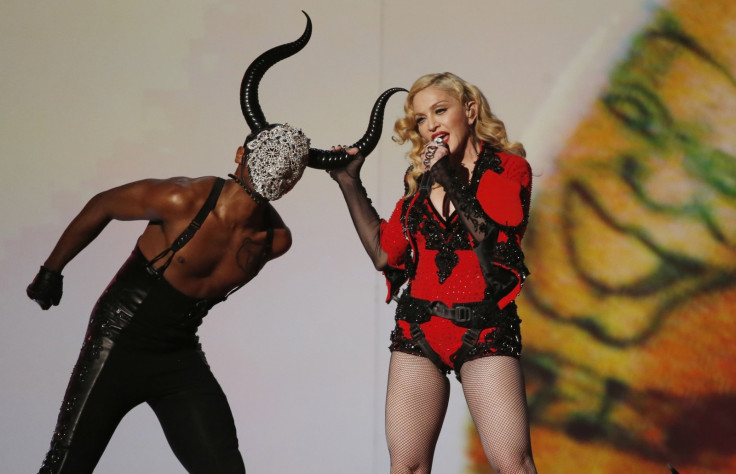Kabbalah: Ancient Jewish mysticism that Madonna popularised

You probably would not have heard of Kabbalah had Madonna not got mixed up in it during the 1990s. The pop star even bought a multi-million pound central London town house and converted it into a Kabbalah centre.
But Kabbalah has not only attracted fad-hungry celebrities such as Madonna, Britney Spears, Mick Jagger, Paris Hilton and Demi Moore. Business folk are turning to it for guidance and advice in the pursuit of profit while doing good. Names include Edward Fitzpatrick, head of the European Stock Exchange, serial investor Jamie True, and nightclub entrepreneur Piers Adams.
It sounds like a Middle Eastern dish, but it is an "ancient wisdom that provides practical tools for creating joy and lasting fulfilment," according to the Kabbalah Centre's website. Kabbalah is old Jewish mysticism that teaches followers about its own version of truth. How the world, universe and god works. Philosophies on how to live. How to connect with the higher spiritual realms.
According to the Encyclopaedia Britannica, Kabbalah "has always been essentially an oral tradition in that initiation into its doctrines and practices is conducted by a personal guide to avoid the dangers inherent in mystical experiences".
"Esoteric Kabbalah is also 'tradition' inasmuch as it lays claim to secret knowledge of the unwritten Torah (divine revelation) that was communicated by God to Moses and Adam. Though observance of the Law of Moses remained the basic tenet of Judaism, Kabbalah provided a means of approaching God directly."
But what is God to a Kabbalist? According to Learn Kabbalah:
For Kabbalists, the visible world is only the superficial skin of reality. Because of the way our minds are constructed to interact with the world, we imagine ourselves as separate selves, going about our business, trying to be happy. In fact, we, the stars, our friends and enemies, and everything around us — all of us are dreams in the mind of God.
Nothing has any separate reality — it only looks like there are separate tables, chairs, computers, and people from a certain, limited perspective. Being in itself is actually nothing but God.
From God's point of view, all of the distinctions we make — between ourselves and the world outside ourselves, among objects in the world, etc. — are completely illusory, because ultimately there is only the undifferentiated unity of the ein sof, the Infinite.
Book of Brightness
Despite the oral tradition, there are a number of texts associated with Kabbalah. One of the most important texts in the early development of Kabbalah was the Sefer Ha-Bahir, or "Book of Brightness", written in the 12th century.
"The book is written in an aggadic style, usually characteristic to the Talmudic literature," wrote Dina Ripsman Eylon in an academic paper on the Bahir.
"This specific literary technique employs various elements, such as parables (meshalim, in Hebrew) and close readings of biblical verses."
She notes that it is the "first kabbalistic work to introduce the doctrine of reincarnation as a religious belief-system, or a theological theory in Judaism".
Another important early Kabbalistic text is The Zohar, written at the end of the 13th century. The Zohar is "a collection of commentaries on the Torah, intended to guide people who have already achieved high spiritual degrees to the root (origin) of their souls," according to the Bnei Baruch Kabbalah Education & Research Institute.
"The Zohar contains all the spiritual states that people experience as their souls evolve. At the end of the process, the souls achieve what Kabbalah refers to as "the end of correction," the highest level of spiritual wholeness.
"To those without spiritual attainment, The Zohar reads like a collection of allegories and legends that can be interpreted and perceived differently by each individual. But to those with spiritual attainment, i.e. Kabbalists, The Zohar is a practical guide to inner actions that one performs in order to discover deeper, higher states of perception and sensation."

The man behind Kabbalah's explosion in popularity at the end of the 20th century and the start of the 21st was Rabbi Philip Berg, who died aged 86 in 2013.
"By simplifying Kabbalah and drawing on aspects of modern life to make it more 'relevant', Berg claimed he made the struggles of Biblical figures 'accessible,'" said an obituary of Berg in the Telegraph.
"Critics on the other hand, ridiculed it as a frivolous fad, New Age mumbo-jumbo, even 'Judaism lite.'"
It continued: "Notwithstanding the cynics, by the late 1990s, Berg and his second wife had elevated Kabbalah to cult status and established a worldwide empire of some 50 centres of instruction. Many followers regarded the couple as divines, scrambling to eat Berg's leftovers after meals and addressing his wife in the third person."
Berg was Madonna's teacher, and they even set up an orphanage in Malawi where the children were given lessons in Kabbalah.
"One of the main precepts of Kabbalah is that we're put on this earth to help people," Madonna told TIME magazine in 2006. "And your job is to figure out how you can help, and what it is that you can do."
Perhaps, in the aftermath of the financial crash and a collapse in trust of businesses, the Kabbalist bosses are trying to work out just how they can help people too. They could start by sharing the wealth.
© Copyright IBTimes 2025. All rights reserved.






















